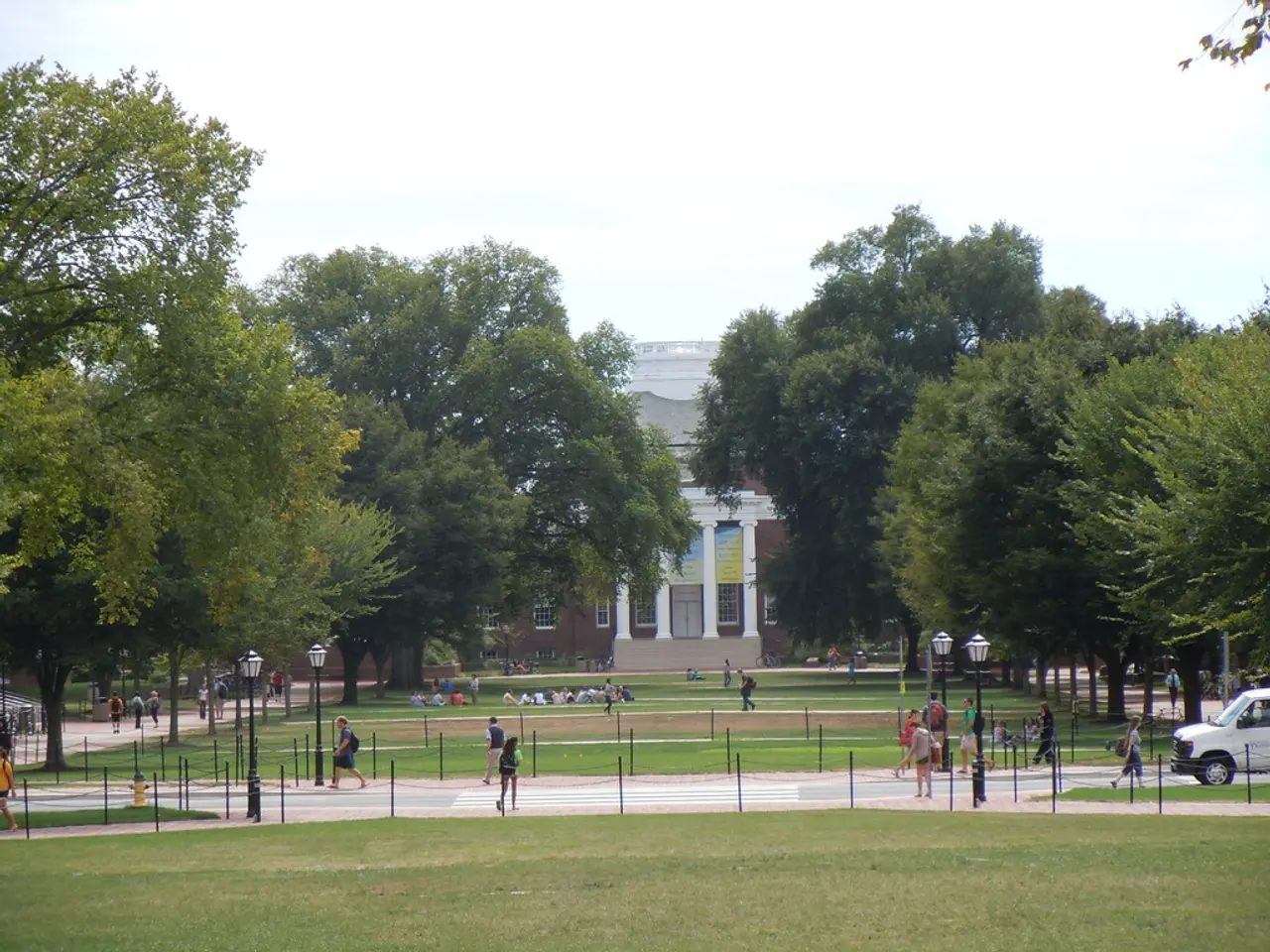Scientific advancements strongly hinge on charitable contributions from the Gulf region
In the rapidly evolving global landscape, Gulf countries are striving to keep pace with technological advancements. While significant contributions have been made through philanthropy, there is a growing need for a more strategic approach to scientific research and innovation.
Historically, philanthropy has played a pivotal role in the Gulf region. Organisations like the Sheikh Saud bin Saqr Al Qasimi Foundation for Policy Research and the Gulf Research Center have been instrumental in driving scholarly research and policy-making. Meanwhile, donors such as Dubai Cares and the Abu Dhabi Fund for Development have supported educational initiatives, nurturing the human capital essential for scientific progress.
However, to remain competitive, Gulf countries must adapt and evolve. A shift in focus is required, with a greater emphasis on funding blue-sky research that can have strategic value. This change is echoed by Omar Al-Ubaydli, Director of Research at the Bahrain Center for Strategic, International and Energy Studies (Derasat), who emphasises the need for a departure from traditional models of government and university funding for research and development.
One area that requires attention is STEM education. A stronger emphasis on science, technology, engineering, and mathematics would provide the foundation for future innovation. Additionally, developing robust research institutions and technology parks can foster collaboration between academia, industry, and government to drive innovation.
Improving research facilities and infrastructure can attract international talent and collaborations, enhancing the region's research capabilities. Encouraging policies and regulations that support startups, intellectual property protection, and R&D funding can stimulate innovation. Global collaboration is also crucial, with engaging in international scientific collaborations and partnerships helping the Gulf region leverage global knowledge networks and keep pace with technological advancements.
The strategic value of philanthropic funding for scientific research has been demonstrated. Examples include the discovery of radar by American financier Alfred Loomis and advances in cryptography and cybersecurity funded by the late hedge fund billionaire Jim Simons. Interestingly, during the Golden Age of Islam, many inventions and intellectual discoveries were funded by private philanthropists.
Notably, the culture of philanthropy in the Gulf needs to change, with philanthropists viewing scientific breakthroughs as a means to determine a nation's fate rather than an exclusive domain of the state. This shift is not only crucial for the Gulf region but also for the world, as scientific advancements can significantly impact a nation's future.
As the Economist highlighted in an article published in January 2025, Gulf states are increasing R&D spending as part of efforts to transform their economies. However, private companies are not expected to plug the gap in funding for research and development in the Gulf region. Instead, it is the responsibility of visionary philanthropists to fund the discoveries they want to be remembered for.
In conclusion, by addressing these areas, Gulf countries can bolster their position in the global scientific community and better harness technological advancements for sustainable development. The precedent for private philanthropy in Arab and Muslim history, as exemplified by Fatima al-Fihri, who founded the University of al-Qarawiyyin in 859, serves as a reminder of the potential impact that philanthropic investment can have on scientific research and innovation.
- To strengthen the Gulf region's competitiveness, there is a need to focus more on funding blue-sky research that can have strategic value, as emphasized by Omar Al-Ubaydli, Director of Research at Derasat.
- Strengthening STEM education by placing a greater emphasis on science, technology, engineering, and mathematics will provide the foundation for future innovation, aiding in driving innovation.
- Encouraging policies and regulations that support startups, intellectual property protection, and R&D funding can stimulate innovation, while developing robust research institutions and technology parks can foster collaboration between academia, industry, and government.
- Family offices or high net worth individuals can leverage their philanthropic funding to invest in scientific research and innovation, as demonstrated historically by figures like American financier Alfred Loomis and the private philanthropists of the Golden Age of Islam.
- By encouraging a culture where philanthropists view scientific breakthroughs as a means to determine a nation’s fate, they can help the Gulf region and the world by making substantial contributions to scientific advancements that can significantly impact a nation’s future.




